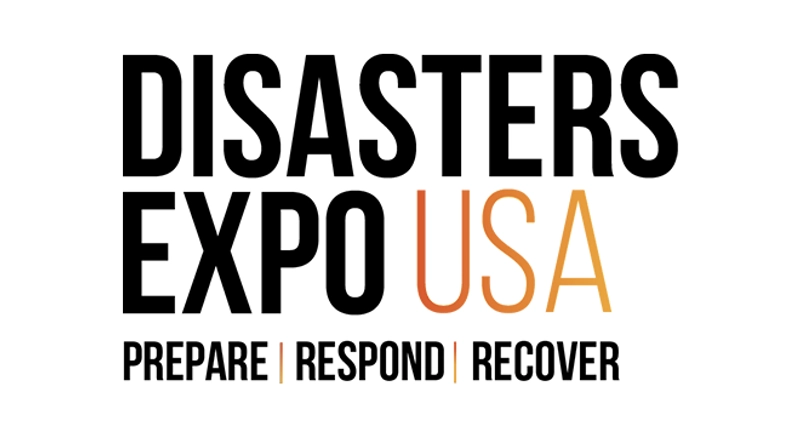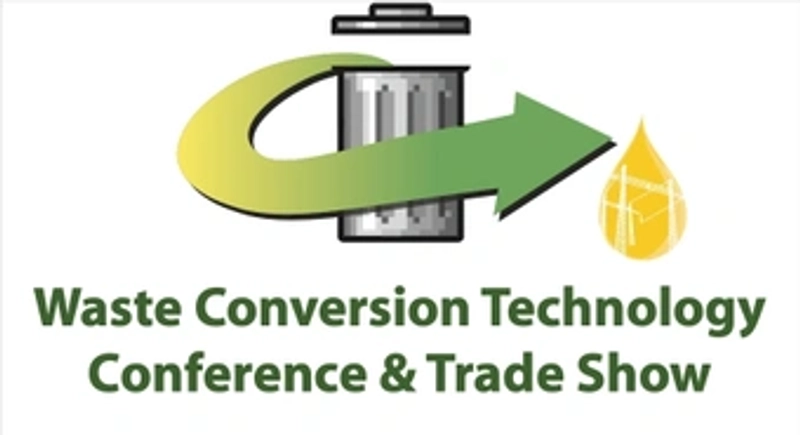Environmental Engineering 中的 United States 事件


Natural Disasters Expo California
The Natural Disasters Expo California: Where Preparedness Meets Innovation
In an era of increasing environmental unpredictability, the Natural Disasters Expo California has established itself as a vital meeting point for those who protect communities, manage crises, and build resilience in the face of nature’s most formidable forces. Hosted in Los Angeles, this global event also recognized as Disasters Expo USA brings together the brightest minds and latest technologies in disaster management, prevention, and recovery.
At its core, the expo is more than a trade show; it's a call to action. With a clear focus on heat & fire, earthquake, storm, and flood threats, the event creates a cross-sector platform where professionals from public agencies, private companies, and non-profit organizations gather to exchange ideas, form partnerships, and accelerate innovation in disaster resilience.
A Central Hub for Disaster Management Professionals
Every year, the expo welcomes an impressive array of stakeholders in the disaster preparedness and emergency response industries. From federal agencies to volunteer responders, from infrastructure engineers to climate scientists the diversity of expertise is as vast as the disasters they prepare for.
Attendees Include:
Emergency response coordinators
Government officials and FEMA representatives
Firefighters, police, and rescue services
Climate and geoscience researchers
NGOs and humanitarian aid organizations
Technology developers and system integrators
Construction and infrastructure firms
Community planners and city officials
This melting pot of experience enables attendees to collaborate across disciplines, learn from real-world scenarios, and explore how technology and policy can combine to save lives.
Four Core Focus Areas: A Holistic Approach to Preparedness
Unlike other niche events, the Natural Disasters Expo California is structured to address the full spectrum of natural disaster threats. Its four dedicated zones allow attendees to deep-dive into specific challenges while understanding how they interconnect within broader emergency response frameworks.
The Four Zones:
Heat & Fire – With wildfires becoming more frequent and devastating, this area highlights early-warning systems, fire-retardant materials, evacuation planning tools, and smart monitoring solutions.
Earthquake – Featuring innovations in structural engineering, seismic detection, early warning systems, and post-quake recovery techniques.
Storm – From hurricanes to tornados, this zone covers real-time weather analytics, storm shelters, drone mapping, and emergency communications.
Flood – As sea levels rise and extreme weather increases, this area showcases solutions for water management, flood barriers, urban planning, and drainage technology.
Each zone is supported by live demonstrations, technical presentations, and panel discussions that bring theory to life and allow for real-time learning and networking.
Technology, Innovation, and Resilience on Display
One of the major draws of Disasters Expo USA is its showcase of groundbreaking technologies that are reshaping how the world responds to crisis. In a space filled with drones, sensors, software platforms, and real-world rescue equipment, visitors don’t just see ideas they experience solutions.
Technologies Exhibited Include:
AI-powered predictive analytics for early warnings
GIS mapping tools for evacuation planning
Structural reinforcement and retrofitting technologies
Satellite communication systems for post-disaster coordination
Emergency shelters and mobile medical units
Flood modeling and water diversion systems
These innovations reflect a critical shift from reactive to proactive disaster management an approach that saves both lives and infrastructure.
Education and Training: A Key Component of the Expo
While the exhibit floor is dynamic and engaging, the educational opportunities at the Natural Disasters Expo are what many professionals value most. With dozens of seminars, interactive panels, and case study sessions, the event provides valuable continuing education for attendees across sectors.
Topics Covered in Seminars Include:
Urban resilience strategies for climate adaptation
Public-private collaboration during large-scale disasters
Real-time crisis communication and media strategies
Community engagement and local preparedness
Innovations in first-responder equipment and protocols
The speakers include leading experts, including emergency directors, city planners, tech founders, and even survivors who share deeply personal stories about recovery and rebuilding.
Why the Natural Disasters Expo Matters More Than Ever
In recent years, the global frequency and intensity of natural disasters has increased. Wildfires, floods, earthquakes, and hurricanes are becoming more extreme, putting millions of lives and billions of dollars in infrastructure at risk. Events like Disasters Expo USA are essential not just for showcasing products, but for fostering the collaboration needed to protect communities.
The expo serves as a critical knowledge exchange platform, where innovation is not confined to technology, but extends to strategy, empathy, and preparedness. It’s where military-grade drone developers talk to city mayors. Where nonprofit coordinators meet AI engineers. Where lessons from the past inform solutions for the future.
Who Should Attend the Next Edition?
If your work involves public safety, construction, infrastructure, risk assessment, humanitarian aid, or environmental science, the Natural Disasters Expo is designed for you.
Top Reasons to Attend:
Access cutting-edge disaster tech and emergency systems
Learn from field-tested strategies and case studies
Network with decision-makers from across sectors
Discover solutions to specific regional and national threats
Train and prepare your teams through hands-on workshops
Whether you're managing a coastal city, leading a wildfire response team, or building resilient infrastructure, this event offers practical value and essential contacts.
A Shared Commitment to Resilience
The future is uncertain, but the Natural Disasters Expo California is helping shape a more resilient one. By creating a collaborative environment that transcends sectors and ideologies, the event shows that preparedness is not just a local issue it’s a global responsibility.
From saving lives to protecting livelihoods, the insights gained and connections made at Disasters Expo USA ripple far beyond the exhibition halls of Los Angeles.


Waste Conversion Technology Conference And Trade Show
Waste Conversion Technology Conference and Trade Show: Driving the Future of Sustainable Waste Management
The Waste Conversion Technology Conference and Trade Show (WCTC) stands as the largest and oldest gathering of its kind, drawing together professionals from across the waste, energy, environmental, and technology sectors. At a time when sustainability and circular economy practices are more vital than ever, this annual event serves as a critical hub for discussing the transformation of waste into alternative energy and other valuable resources.
Held annually, WCTC attracts an audience of scientists, engineers, entrepreneurs, policymakers, and investors—all driven by a shared mission: to harness innovative technologies and turn environmental challenges into opportunities. With a powerful lineup of workshops, case study sessions, and an expansive trade show floor, the event has earned its reputation as a must-attend for anyone involved in waste-to-energy and resource recovery sectors.
Discovering the Future of Waste-to-Energy Technologies
One of the most compelling aspects of WCTC is its deep dive into cutting-edge waste conversion technologies. As the global community pushes to reduce landfill dependency and meet climate targets, technological advancement in waste management is no longer optional—it’s essential.
Attendees of the conference can explore a broad array of innovative solutions that are reshaping how waste is processed and repurposed. These technologies not only reduce environmental impact but also provide viable economic models for monetizing waste streams.
Core technologies featured at WCTC include:
Pyrolysis and gasification for transforming waste into synthetic fuels and electricity
Anaerobic digestion and biofuels from agricultural and food waste
Plasma arc technologies for high-temperature waste treatment
Mechanical-biological treatment (MBT) systems for complex municipal waste streams
Chemical recycling methods for plastic and textile waste
These systems are not just theoretical—they are operational, and many sessions include real-world performance data and investment figures. For professionals looking to stay ahead of the curve, the hands-on demonstrations and detailed technology showcases offer a rare opportunity to engage with the next generation of waste solutions.
Building Meaningful Partnerships and Funding Opportunities
Beyond the technology, WCTC serves as a vital networking platform. From casual meetups over coffee to curated business matchmaking sessions, the event fosters strategic collaborations that help get projects off the ground and into production. In an industry where capital, permits, and policy often dictate feasibility, having the right connections is half the battle.
Strategic networking at WCTC enables attendees to connect with:
Project developers seeking technology providers or joint venture partners
Municipal and government agencies interested in sustainable infrastructure
Private investors and venture capitalists focused on clean technologies
Technology innovators offering pilot-ready and commercial systems
Policy experts and regulatory bodies who influence the permitting process
These relationships often translate into long-term collaborations. Many successful projects across North America and Europe trace their origins back to initial connections made at WCTC. The event provides a unique combination of technical depth and business accessibility, making it the ideal forum for moving from idea to implementation.
Learning From the Experts: Insights Across Sectors
One of the standout features of the Waste Conversion Technology Conference and Trade Show is the access to seasoned industry experts who openly share their experiences, challenges, and lessons learned. Whether the focus is on regulatory navigation, process optimization, or risk management, the knowledge exchange is practical and relevant.
The conference features dozens of sessions covering a broad spectrum of waste conversion topics, often organized by sector or process type. Attendees benefit from a range of voices—from municipal waste managers to agricultural bioenergy entrepreneurs.
Highlights from previous expert sessions include:
Case studies of waste-to-energy facilities in both urban and rural settings
Analysis of permitting hurdles and how to navigate environmental compliance
Strategies for feedstock aggregation and contamination management
ROI breakdowns for anaerobic digestion and thermal treatment systems
Policy roundtables discussing incentives, tax credits, and carbon pricing
These sessions go beyond theory, focusing on what works (and what doesn’t) in real-world conditions. Participants walk away with actionable strategies and frameworks that can be directly applied to their own operations or projects.
A Comprehensive Platform for Circular Economy Solutions
The broader context of WCTC is the global shift toward a circular economy, where materials are reused, energy is recovered, and waste is minimized. This theme is woven throughout the conference, encouraging participants to think beyond disposal and explore holistic resource recovery.
Circular economy innovations explored at the event include:
Nutrient recovery from organic waste for use in agriculture
Reuse of ash and byproducts in construction materials
Conversion of landfill gas into vehicle-grade RNG (renewable natural gas)
Integration of IoT and AI to optimize collection and processing systems
Community-scale zero-waste infrastructure designs
By addressing the entire value chain—from waste generation to product reuse—WCTC promotes a system-wide approach to sustainability. It challenges attendees to reframe their perspective: from seeing waste as a liability to recognizing it as a powerful, untapped asset.
Who Should Attend the Waste Conversion Technology Conference?
WCTC attracts a diverse mix of participants from various sectors. Whether you're a seasoned waste professional or a newcomer exploring your first project, the conference offers tailored insights and valuable connections.
Ideal attendees include:
Municipal waste planners and public works officials
Environmental engineers and sustainability consultants
Technology providers and equipment manufacturers
Investors and financial institutions focused on clean energy
Researchers and academic institutions developing new waste science
Each attendee benefits from the multi-disciplinary nature of the event, as it combines technical content with business strategy, regulatory analysis, and project financing.
Turning Waste Into Opportunity at WCTC
In an era defined by environmental urgency and technological transformation, the Waste Conversion Technology Conference and Trade Show serves as both a beacon and a blueprint. It empowers attendees to discover cutting-edge technologies, forge strategic partnerships, and learn from industry leaders who are redefining what’s possible in waste management and renewable energy.
WCTC goes far beyond the traditional trade show format. It’s a high-impact, content-rich environment where ideas turn into action, and problems meet practical solutions. If your work intersects with waste, energy, or sustainability in any form, attending WCTC is not just beneficial—it’s essential.


ASA-CSSA-SSSA MEETING
ASA、CSSA、SSSA国际年会是一项关键活动,旨在激发农学、作物和土壤科学的变革,以促进科学进步。在世界努力应对对现代农业构成重大挑战的快速变化的气候之际,本次聚会提供了希望的灯塔。通过利用先进的建模工具、遥感、机器视觉、自主机械和机器人等尖端技术,会议强调了人工智能如何增强土壤管理、促进气候智能型耕作方式以及促进准确的森林测绘。
这项顶级活动由美国农学会、美国作物科学学会和美国土壤科学学会联合主办,是环境科学领域创意、解决方案和创新的大熔炉。年度会议在科学探索、社交机会和合作之间取得了完美的平衡,营造了一种充满友情的氛围。它欢迎来自行业、政府和学术界等各个领域的新兴学习者和知名领导者,他们都渴望探索农学、作物和土壤科学的最新进展。
有成千上万的教育演示可供选择,与会者可以深入研究丰富的解决方案,这些解决方案可能只需要一次会议、一次对话或一个新朋友。多样化的计划鼓励参与者批判性地思考他们在日常工作中面临的挑战,并发现应对这些挑战的创新策略。通过与专家和同行互动,与会者不仅可以获得宝贵的知识,还可以开发教育他人的工具,从而扩大他们所学内容的影响力。
当参与者离开年会时,他们随身携带了新的见解和切实可行的战略,随时准备实施变革,从而实现更可持续和更具生产力的农业实践。该活动概括了解决我们这个时代紧迫问题的集体努力精神,坚定了人们的信念,即通过合作和创新,农业的未来可以变得更好